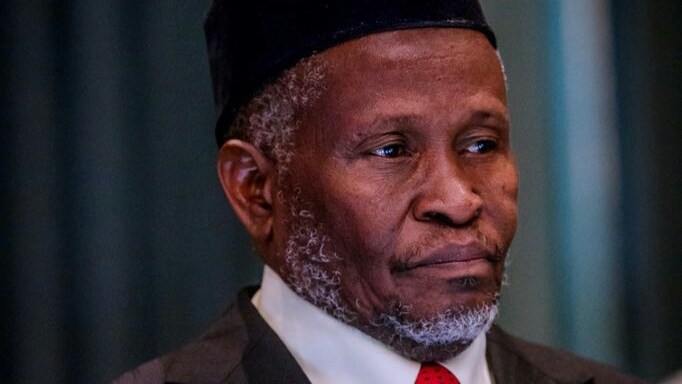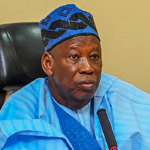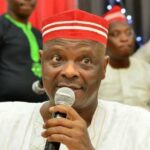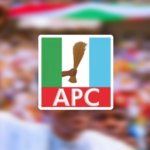The judiciary is a major pillar of democratic governance which deals with the administration and dispensation of justice. However, can it be said to have lived up to this constitutional mandate in Nigeria’s 22 years of unbroken democracy?
Nigeria’s Fourth Republic from May 29, 1999, unshackled the judiciary from the bondage of military decrees. May 29 has since been replaced by June 12 as “Democracy Day” which was signed into law last year by President Muhammadu Buhari.
Since the return to democracy in Nigeria, the judiciary has been playing a key role to sustain it by way of adjudicating in all cases that arise from pre-election activities, petitions arising after general elections and other elections and the appeals to Court of Appeal arising from the decisions of election tribunals, some of them end up at the supreme Court.
The current administration has promulgited on Executive Order 10 to provide financial autonomy for the judiciary and legislature of the 36 states of the federation.
Legal experts say the judiciary has remarkably strengthened Nigeria’s democracy, especially with elections, which are an essential ingredient of democratic process.
According to Akinola Kehinde (SAN), the judiciary has done its very best, especially the Supreme Court, which struck down 84 mushroom political parties and opened up the rights of Non-Governmental Organisations (NGOs) to pursue fundamental human rights causes
The judiciary determined 680 election petitions and 749 appeals arising from the 2015 general elections and 766 election petitions arising from the 2019 general elections.
Four out of the 766 petitions in 2019 were filed against President Muhammadu Buhari: one by the PDP and its candidate, Atiku Abubakar; another was by the Hope Democratic Party (HDP) and its National Chairman and presidential candidate, Ambrose Owuru. The third petition was by Aminchi Habu and his party, the Peoples Democratic Movement (PDM) and the fourth by Geff Ojinika and the Coalition for Change (CC).
They all contended that, “The election was vitiated by substantial non-compliance with mandatory provisions which irregularity substantially affected the election such that the first respondent (Buhari) was not entitled to be returned as the winner of the presidential election.”
How election petitions have fared in Nigeria’s democracy is no longer a domestic issue, but an issue that has attracted global attention.
Just before the 2015 general elections, the Court of Appeal exercised its powers under Section 285 (1) of the 1999 Constitution to set up Election Petition Tribunals (EPTs) in all the states of the federation and the Federal Capital Territory (FCT) to determine election petitions. Similar tribunals were set up after the 2019 general elections.
Investigations revealed that the tribunals’ assignments were demanding and laborious and often the panels were overstretched.
To that extent, training programmes were often organised for the chairmen and members of the tribunals to highlight their roles and broaden their knowledge in the determination of petitions and appeals.
Judges were often deployed by the President of the Court of Appeal (PCA) from various jurisdictions and posted to states to handle these petitions. These judges were able to dispose of the petitions and appeals within the period required by law without a single appeal lapsing despite the inconvenience of shuttling from one division to another.
Some judges had to forego their Christmas vacation to ensure the determination of the appeals within the stipulated time. Most of the judges had to crisscross the country at great risks to perform their constitutional duties.
The judges worked assiduously to ensure smooth and expeditious disposition of the petitions and appeals.
According to a source close to the judiciary who does not want her name in print, “Judges went into action in the 2015 and 2019 exercises with a clear picture of the settled areas of law.
“These areas include the sanctity of the 180 days stipulated for the determination of an election petition and 60 days for an appeal; the method of application for issuance of pre-hearing notice; and that an interlocutory appeal shall not operate as a stay of proceedings.”
It would be recalled that the introduction of time limit for the hearing and determination of election petitions and appeals was a child of necessity borne out of the scandalous delays in the determination of election petitions in the past.
The amendment of the constitution relating to time limit has, however, placed tremendous pressure on the justices.
Before now, an election petition and appeal therefrom would be delayed for over four years, and by the time judgment was delivered, the four-year tenure of the office in contention would have elapsed.
Justice Helen Moronkeji Ogunwumiju, Justice of the Supreme Court (JSC), said, “Without the 180-day time limit on the tribunals and the 60 days on the appellate courts, election petitions would have gone on nauseum (to a sickening and disgusting degree) as it was in the past to the detriment of speedy administration of justice. I applaud the time limit. It is the best thing that has happened to the electoral process in Nigeria.
“However, the time limit has placed tremendous pressure on the justices of the court. In spite of the pressure of time and space under which the Court of Appeal justices worked, to the best of my knowledge, none of the appeals lapsed.”
According to Shalva Kipshidze, Director of International Foundation for Electoral Systems (IFES), “Truly sustainable democracy can only thrive on a strong and reliable judicial system. The judiciary, through the election petition tribunals and appeals, has assisted greatly in the credibility of elections in Nigeria. The Court of Appeal, from observation, has been very strategic in its management of the process.
“It is, therefore, hoped that the existing frameworks made up of the Nigerian Constitution and the Electoral Act will continue to empower the judiciary in order to sustain the momentum and deepen democracy in Nigeria.”
However, just like in any human endeavour, there are bad eggs within the nation’s judiciary that should be fished out. Some of the judges who were appointed to the EPTs became billionaires over night after receiving bribes from politicians.
Perhaps, it is for this reason that a former President, Goodluck Jonathan, said the judiciary should not be the one to determine winners of elections, but that the issues should be referred back to the electorate to decide.




